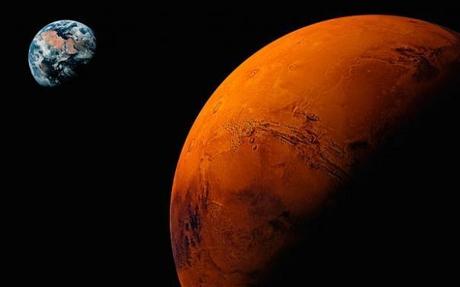
At 7.41 am Wednesday, confirmation news came from the distant planet; the Indian spacecraft Mangalyaan has successfully entered the Mars Orbit. The news had to travel a distance of 400m miles back to Earth causing a delay of 12 minutes to reach the ISRO control room. With this successful launch, India becomes the first country in the Asian continent to launch satellite in Mars orbit in a maiden attempt.
The Indian Mars Orbiter Mission (MOM) after being launched on November 5, 2013 by Polar Satellite Launch Vehicle reached the Earth’s orbit burning six engines. Later, the spacecraft departed the Earth, set on its journey to Mars on November 30. Trajectory corrections were made on a couple of occasions to set precisely its path towards Mars. The scientists of ISRO described the launch of the orbiter on the Mar’s orbit to be flawless.
The MAVEN team of NASA sent their best wishes for successful orbit insertion and mission to the ISRO team. NASA’s MAVEN spacecraft traveled more than 10 months to reach Mars mainly to study about the planet’s atmosphere. The MAVEN spacecraft is estimated at a budget of $671 million.
The Indian MOM mission was carried out at a relatively inexpensive budget of $74 million. It is cited to be the cheapest inter-planetary mission undertaken thus far. Nevertheless, there were speculations from certain quarters if it was necessary for India to spend on the space program while the country still faces issues like hunger among the poor.
“I have heard about the film Gravity. I am told the cost of sending an Indian rocket to space is less than the money invested in making the Hollywood movie,” said Indian Prime Minister Narendra Modi. The budget of the Hollywood flick ‘Gravity’, starring Sandra Bullock and George Clooney, is $100 million according to IMDB movie site.
After MOM, India joins the elite space club becoming the fourth country in the world following U.S., Europe and Russia to launch spacecraft in Mars. It is to be noted however that half of Mar’s mission out of 41 have failed due to reasons including malfunction, radio failure and missed landings.
“MOM is a major step towards our future missions in inter-planetary space,” said ISRO Chairman K. Radhakrishnan.
The probe is expected to circle Mars for six months, about 500 kilometers from its surface, and send data back to the Earth.

